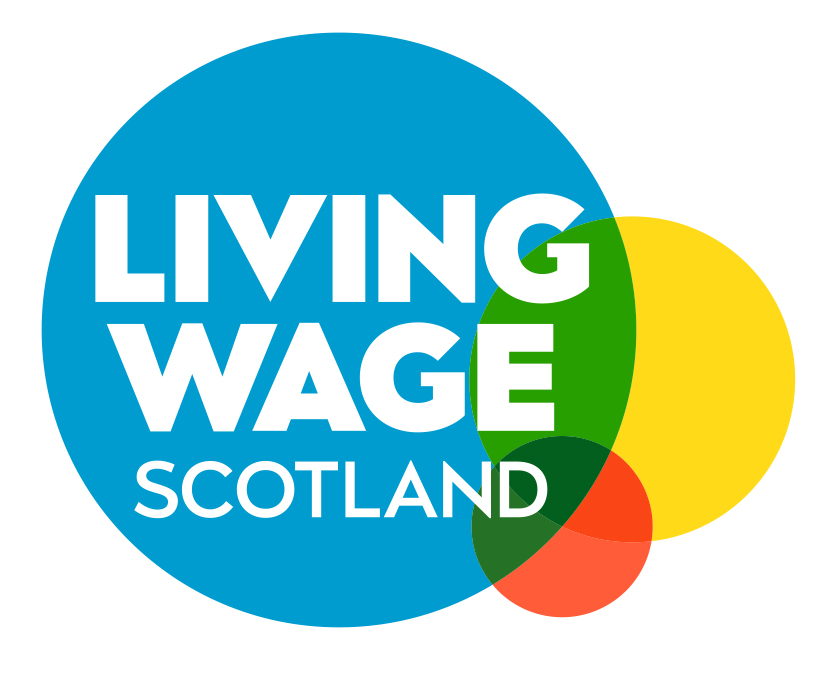by Anna Hirvonen, Living Wage Accreditation Officer
At Living Wage Scotland, I lead on our Hospitality & Tourism employer engagement. In this blog I share some reflections from working with employers in the industry, on benchmarking pay against the real Living Wage, amid cost pressures and challenges.
The past few years have not been easy for hospitality and tourism businesses, who have faced a storm of pandemic restrictions, spiralling energy costs, and recruitment challenges exacerbated by post-Brexit immigration measures. Pre-pandemic, food and accommodation services accounted for approximately 3% of Scotland’s GDP and 8% of Scotland’s jobs, making it an important sector for the Scottish economy. Wages within the sector have been gradually increasing since the pandemic as a natural result of higher job vacancy rates. Despite higher wage offerings to attract staff, the accommodation and food services sector continues to have the highest proportion of jobs paid below the real Living Wage – 48.5 percent as of April 2022 (compared to the Scottish average of 9%).
Since 2018, Living Wage Scotland has been working with businesses within the hospitality and tourism industry to better understand some of the challenges and opportunities Living Wage accreditation brings for this historically low-paid sector. Through this work, we have seen the network grow from a handful of trailblazing employers to more than 200 accredited hospitality and tourism businesses in Scotland. Since 1 April this year, more than 600 workers within this sector have already been uplifted to the real Living Wage. Despite the challenging economic climate, we have also seen first hand some of the amazing ways in which businesses support their employees to live happy, healthy, and fulfilling lives, from offering flexible working to focusing on providing paths to progression.
The Living Wage Scotland Hospitality and Tourism Steering Group was established in 2019 to further progress our work and to enable us to learn from businesses directly. This group is made up of Living Wage Champions from within the sector, who give up their time and expertise to help shape our engagement with the industry. When I took over as the lead for our hospitality and tourism strategy in the summer of 2021, I was inspired by the passion of these business leaders to both look after their team members and improve standards within the industry. This passion is well encapsulated in a recent blog by the Chair of the Steering Group, Kat Brogan:
“We support our team with flexible working and job shares and the Living Wage is just an extension of that. For us, it’s part of providing a respectful and fulfilling work environment. We listen to employees and give them a voice to ensure they feel happy and engaged. We look after them and they look after us.”
By working directly with hospitality and tourism businesses, we have been able to learn more about the pressures businesses face as well as the benefits of accreditation, especially when it comes to retention and recruitment of staff. Having a better understanding of the business landscape has also enabled us to feed into other sector-specific work, including The Fair Work Convention’s inquiry into the Hospitality Industry. This 18-month inquiry explores the experience of fair work in the industry and how this could be improved to benefit both workers and employers. Participating in the inquiry has been an opportunity to explore the gaps in current practices and has demonstrated a need for collective action from employers, stakeholders, and the Scottish Government.
The valuable insights gained from working with businesses have contributed to a research project focusing on the reduction of in-work poverty within the Hospitality sector. Serving the Future is a three-year action research project working with hospitality employers and workers. It takes a variety of approaches to identify possible changes in business practices and within policy to reduce and prevent in-work poverty. Since June of 2023, I have been working with the Serving the Future team to help shape the dissemination strategy and engagement with the industry. Early findings from the project can be found on the Serving the Future website here.
While we have made significant progress when it comes to engaging with the hospitality and tourism industry, there is more work to be done to ensure workers receive a real Living Wage and are able to break free from in-work poverty. We will continue to learn from and work with the sector to grow our Living Wage network and to celebrate those employers who already go above and beyond to support their staff!

